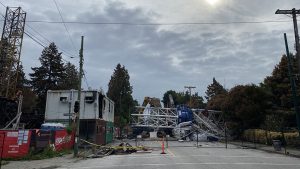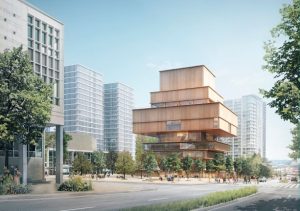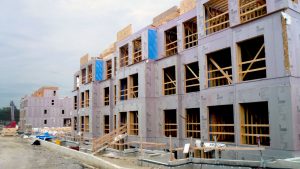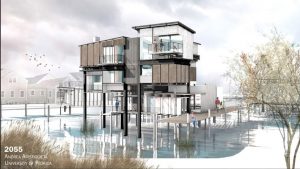VANCOUVER — Vancouver City Council has passed a five-year Climate Emergency Action Plan that outlines 19 actions to reduce its carbon pollution by 50 per cent before 2030.
The city noted four of the 19 actions are “game changing” in that they could significantly move the dial on reducing carbon pollution from the city’s largest sources – buildings and transportation – which represent nearly all of the carbon pollution produced in Vancouver.
According to the city, 54 per cent of its carbon emissions come from burning natural gas for hot water and heating. Nearly 40 per cent come from gas vehicles.
Some of the recommendations include:
- Expanding residential on-street parking programs city-wide, with a carbon surcharge on new, higher priced, gas and diesel vehicles.
- Setting carbon pollution limits for existing buildings to transition older buildings off fossil fuels by improving energy efficiency and switching to renewable energy.
- Setting requirements for low carbon construction materials and practices in new buildings to reduce the embodied carbon from building construction.
- Create a model to begin transportation pricing for downtown Vancouver by 2025.
According to independent third-party modelling, the changes could net savings of $1 billion for residents and businesses as a result of the changes in technology and behaviour made over the next decade.
“The Climate Emergency Action Plan is an early action in Vancouver Plan, and its approval signals a clear commitment to align Vancouver with climate science by scaling-up efforts to limit warming to 1.5 C,” said Gil Kelley, the city’s manager of planning, urban design and sustainability, in a press release. “The actions identified are ambitious and necessary. Through them, we will improve the air we breathe, make our neighbourhoods more vibrant, reduce energy waste and switch to renewable energy sources, use low carbon construction materials in our buildings, and boost the green economy, amongst other priorities.”










Recent Comments
comments for this post are closed